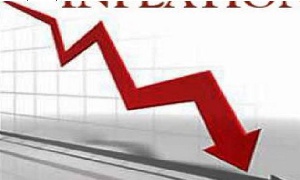The Institute for Fiscal Studies (IFS) says Ghana’s current weak economic growth does not provide a good context for further fiscal consolidation envisaged by the government.
In its assessment of the 2016 Supplementary Budget, IFS said the document gave scant assurance that the weak economic conditions that have prevailed for quite some time in the country would be mitigated during the remaining period of 2016.
It therefore advised government to re-examine its borrowing plans for 2016, with the view to limiting the interest cost burden and debt distress risks.
The revised budget projects total revenue and grants to fall relative to 2015 by 0.2 percent of GDP to 22.7 percent of GDP and total expenditure (including arrears clearance and tax refunds) to be cut by 1.5 percent of GDP to 27.7 percent of GDP.
It said that implied that additional fiscal consolidation envisaged in 2016 relied disproportionately on expenditure under the revised budget whereas the original budget had forecast a greater reliance on revenue.
“The trend of weak economic growth, high inflation, high interest rates and debt unsustainability has not been reversed, and debt vulnerability could worsen as the government contemplates more external borrowing at an expensive cost. Finally, the real sector needs far greater attention than it has been given in current economic policies,” it emphasized.
Observations
On the macro economy, it said the sharp revision to the 2016 real GDP growth estimate from 5.4 percent to 4.1 percent was both surprising and worrying.
It suggested that contrary to expectations of a strong pick-up this year, economic growth would remain subdued and well below the average of 7-8 percent before the onset of the recent economic challenges.
“The economy also continues to experience high inflation which ranged between 18.4 and 19.2 percent in the first half of the year and has been eroding real incomes. Although the government appears to have stuck to its end-year inflation target of 10.1 percent, the mid-year budget failed to indicate how that target could be plausibly attained during the second half of the year.
“The high inflation, tight central bank policy stance and high level of government activity in the debt market have kept interest rates at elevated levels, despite a slight dip at the short end of the market over the past year.”
Banking sector
It said within the banking sector, the average lending rate had increased from 26.9 percent in December 2015 to 32.1 percent in April 2016, with credit growth slowing down considerably amid a swelling stock of non-performing loans.
External sector
External sector trends have also not been favourable, it indicated, adding that with the trade and current account balances weighed down by declining export earnings, once again underlining the country’s vulnerability to international commodity price swings.
Exchange rate
Meanwhile, the IFS said the exchange rate had been relatively stable since the last quarter of 2015 even though the effect on inflation remains muted.
“Its outlook, however, has become a bit more uncertain, owing to the abortive Eurobond issuance.”
Expenditure
The revisions on expenditure entail reductions to capital expenditure, goods and services, and compensation of employees compared with the original budget.
“This will be offset by increased transfers to other government units, in particular to the Road Fund. At least two issues emanate from these proposed adjustments. The first concerns the feasibility of reducing compensation of employees’ expenditure through cutting social security payments without incurring arrears, as the government has committed itself to under the IMF programme.
“Social security payments are a given fraction of wages and salaries expenditure, so a cut to this expenditure in the face of unchanged wages and salaries expenditure implies creation of new arrears.”
The second concerns the rationale for the reduction in capital expenditure, which underpins long-term economic growth.
“In actual fact, the revised budget proposal will see capital expenditure slashed by GH?740.5 million (10.4 percent) from 2015 which will take it down to 3.8 percent of GDP from 5.1 percent last year.”
On the foregoing, it said, sacrificing the much-needed capital expenditure on the altar of fiscal consolidation may do more harm than good to the economy in the long-term.
Business News of Monday, 15 August 2016
Source: peacefmonline.com
Ghana’s economic growth weak - IFS
Entertainment












